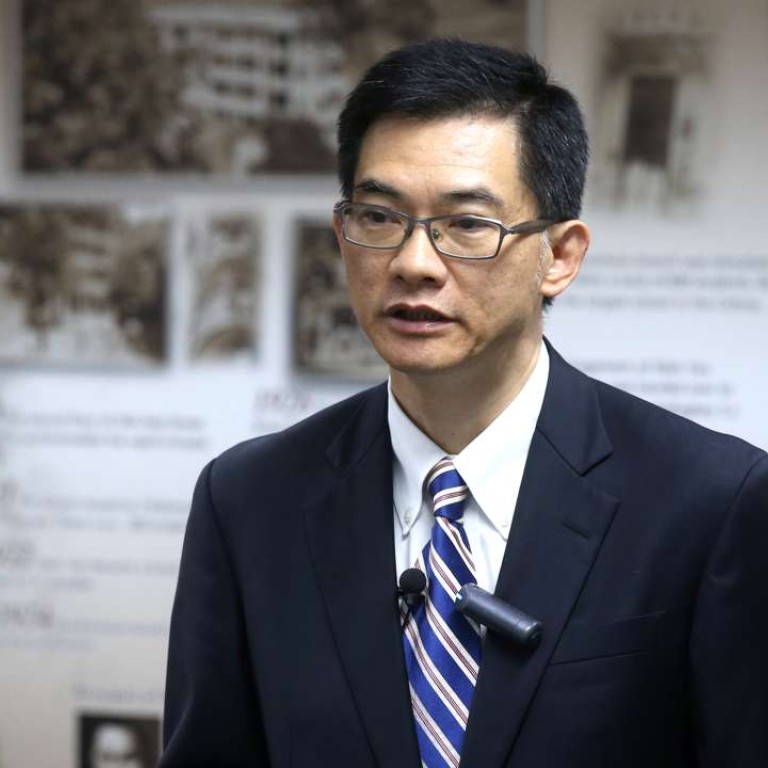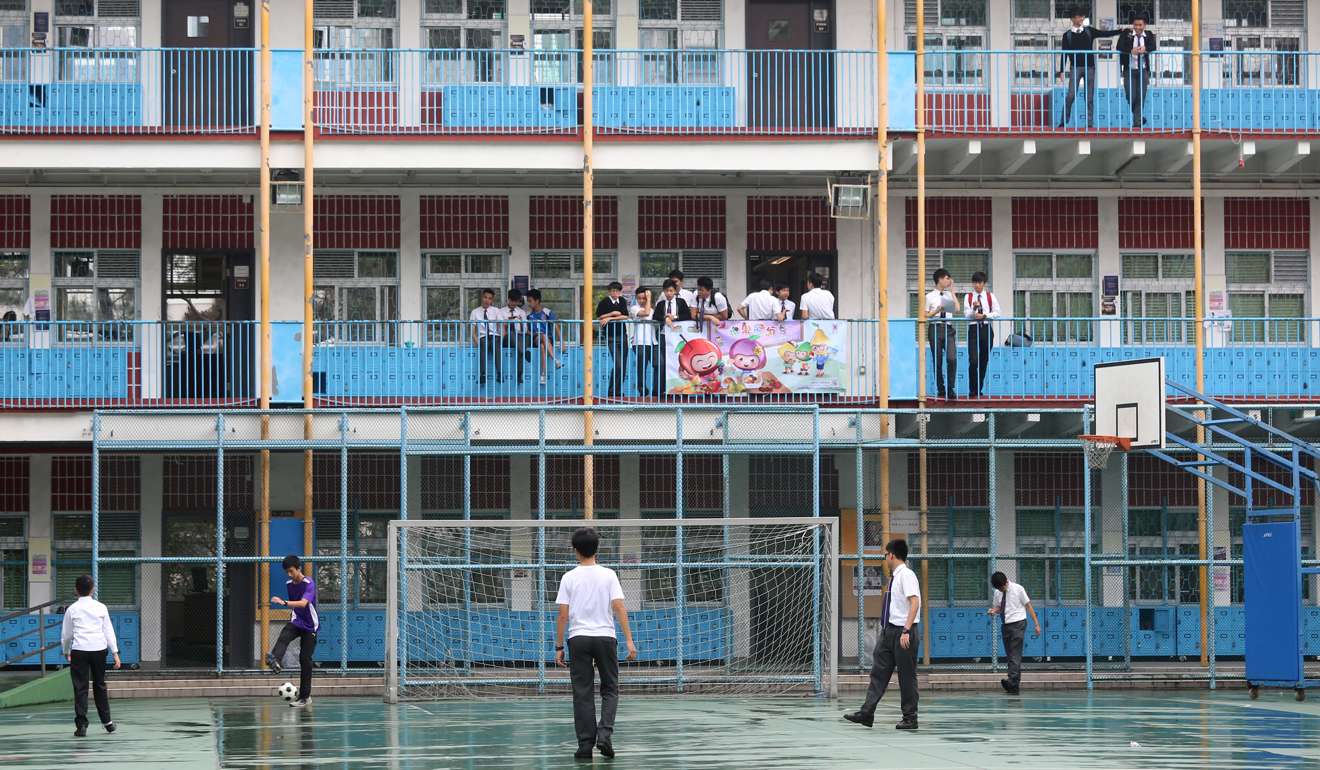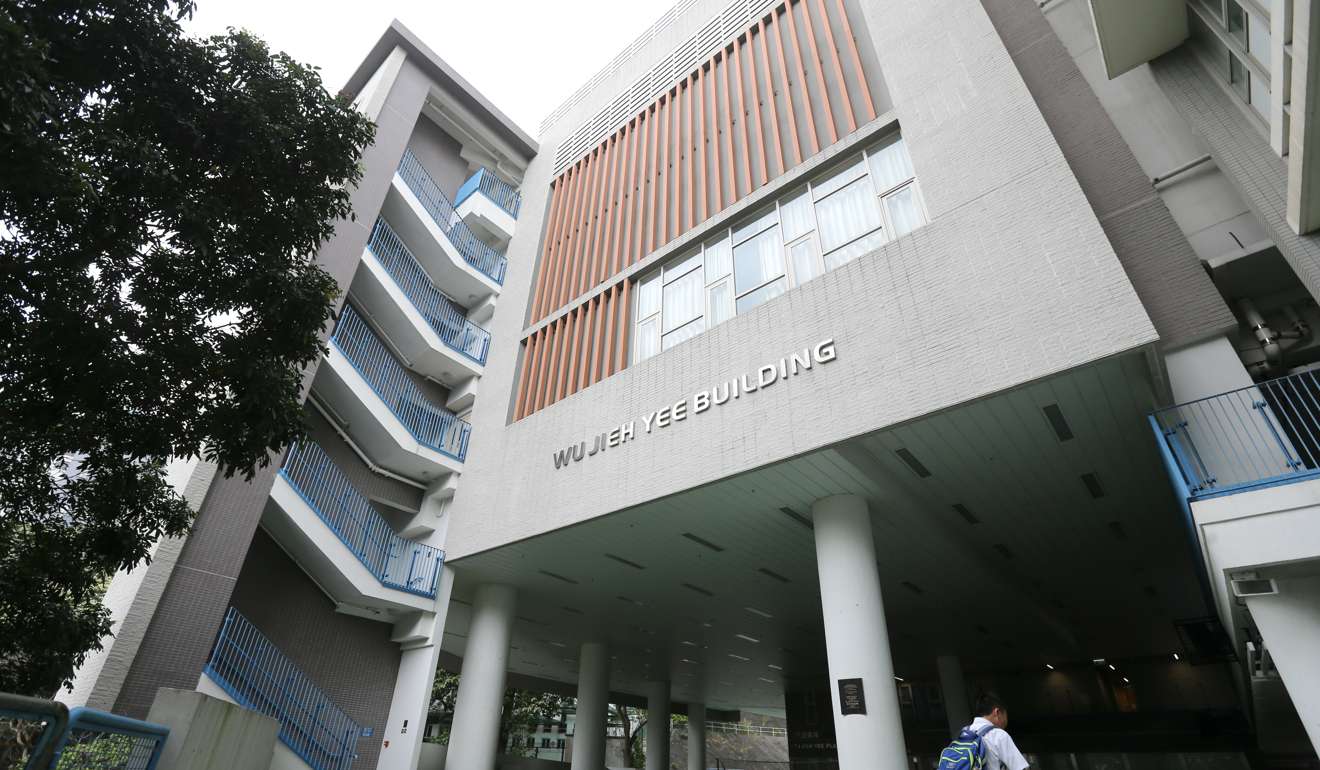
Principal fears Hong Kong school may lose right to teach in English
Head at currently free Wah Yan College breaks silence over proposed controversial switch to Direct Subsidy Scheme and fees
A government-funded secondary school in Wan Chai faces having to stop teaching in English owing to a growing difference in student abilities, its principal said.
This was partly why Wah Yan College had been considering switching to a Direct Subsidy Scheme (DSS) school, allowing it to charge fees and have more autonomy, So Ying-lun said.
So, breaking his silence since the proposal was revealed in February, said the move could happen as early as September 2019, pending talks with stakeholders and a final decision by school operator the Society of Jesus.

“Combining Chinese and Western styles has been our fine tradition,” So said on Monday.
“If we can no longer be ourselves, how can we help those who we want to help?”
So said the school, affiliated to Pun U Association Wah Yan Primary School, needed to dedicate 79 of 93 central allocation places to primary school students.
The remainder were set aside for those living in the Wan Chai school net.
Another 43 places were reserved for applications without district restrictions, offered under the school’s discretionary power.
With the falling birth rate, So said more youngsters, perhaps not the best academically, had been admitted to the primary school. This meant more of these students would enter the secondary school if the quota of 79 remained unchanged.

If Wah Yan remained in the current free education system, it would either have to disaffiliate itself from Pun U or keep the quota unchanged, risking it being removed from the list of schools allowed to teach in English.
The Education Bureau stipulates that only schools which fill 85 per cent of places with the top 40 per cent of students are allowed to teach in English.
“We do not want to cut our ties with [Pun U],” So said.
“That’s why we are considering switching to direct subsidy.”
According to the consultation paper, under the DSS, the school plans to continue to admit students at the top academic level, and the one next to that, from Pun U, with the flexibility to “reduce somewhat excessive learner diversity”.
So said the six-month consultation with stakeholders, which began last week, would discuss whether to continue with the quota for Pun U students.
Three annual fee levels of HK$20,000, HK$18,000 and HK$16,000 have also been proposed.
So said the school would not charge more than HK$20,000 because it wanted to attract students from different socio-economic backgrounds.
Once the consultation had concluded, the school would submit a final report to the Society of Jesus, which would make a final decision on whether to apply to the Education Bureau to switch to the DSS model.

